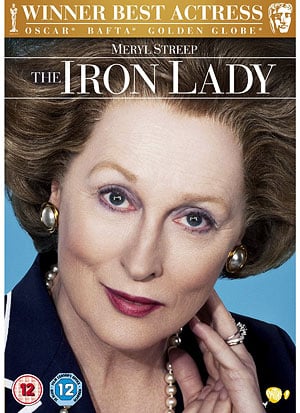 There have been many movies made about Margaret Thatcher in recent years. Now that she has passed, here is a review of three of them.
There have been many movies made about Margaret Thatcher in recent years. Now that she has passed, here is a review of three of them.
We start with “The Iron Lady” (2011), which stars Meryl Streep. Streep does a fantastic job of playing the former prime minister of the U.K. at the height of her power and later as an elderly woman. There is a lot of use of flashbacks and we see the formidable woman become vulnerable with age.
Despite Streep’s stellar performance, the movie lags.
What she does, however, is depict Thatcher not only as “The Iron Lady of the Western World” but also as a wife and mother, a woman of much compassion and softness.
And there is the contradiction.
The other two films are documentaries: “Margaret Thatcher: The Iron Lady” (2012) and “The Lady’s Not for Turning: An Unauthorised Story on Margaret Thatcher” (2011).
What all three films do is hit the high notes of Thatcher’s career: becoming the U.K.’s first woman prime minister, her policies regarding trade unions (particularly the coal miners’), the Falklands (las Malvinas) war, and the attempt on her life in a Brighton hotel by the Irish Republican Army.
What they all do as well is show Thatcher’s background, how she grew up the daughter of a grocer, a man whom she admired because of his convictions. She studied chemistry at Oxford but soon found her true love in politics.
Denis Thatcher, Margaret’s husband of more than 50 years, also plays a prominent role, a man who acts as a sounding board for his wife and who steadies her when she is uncertain.
The problem with all three is that they do not dive into the controversial issues, they merely mention them. For example, 10 Irish hunger strikers protesting Thatcher’s policy in Northern Ireland died in 1981. There is scant coverage in these films.
In “Margaret Thatcher: The Iron Lady,” there are a lot of interviews with journalists who all seem to admire Thatcher. And while there are some images of violence as protesters clash with police and some surround Thatcher’s car, there is no strong analysis of her policies, again particularly with regard the coal miners.
Also, the way in which Thatcher rooted out socialism in Great Britain is shown but superficially.
In “The Iron Lady,” the prime minister is shown comparing her response to the invasion of the Falklands (las Malvinas) by Argentina to the response of the United States when Pearl Harbor was attacked by Japan.
Also in “The Iron Lady,” Thatcher is seen at the end of her time as prime minister with former allies withdrawing support. She is also shown berating a member of her cabinet in strident tones, further alienating herself from her own government.
It is easy to demonize or lionize Thatcher, but those who do so run the risk of missing the big picture. Regardless of where you stand on her politics, her impact on Britain was remarkable.
All three films are available to rent.
Murphy can be reached at: [email protected]